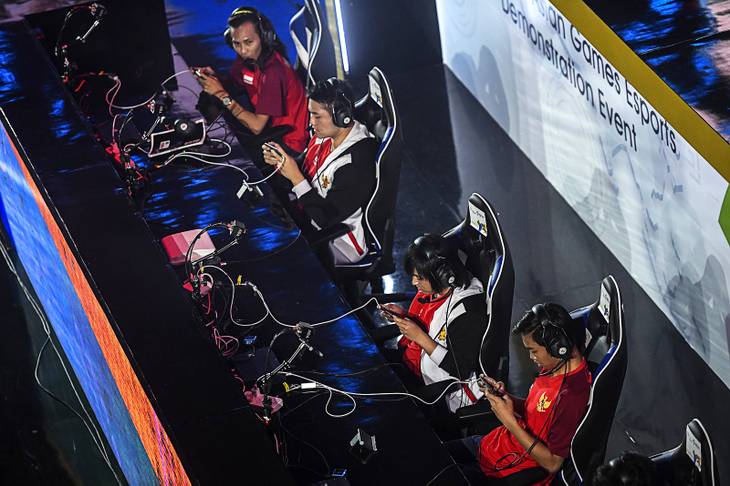As sports betting is increasingly embraced across the country, could wagering on esports eventually follow it into the mainstream?
The rapidly evolving nature of the esports industry, with new game titles and developers popping up all the time, might make regulating esports betting a challenge, according to a panel of industry experts during an education session Monday during the Global Gaming Expo at the Sands Expo Center.
With expected 2018 revenues above $900 million — a 38 percent increase from 2017's $655 million — it would be foolish for the gaming industry to turn a blind eye to taking bets on matches, according the panel.
“It would be an enormous missed opportunity if betting on esports is not allowed,” said Bahar Alaeddini, partner at Harris Hagan, who specializes in online and land-based gambling law. “The question that needs to be asked is not whether you like it or not, but how you can become part of it.”
Doing so is easier said than done.
Regulating esports matches and ensuring the integrity of games will be key. Partnerships between game developers and gaming governing bodies will be crucial, but those publishers might not be so eager to participate, as they have nothing to lose in the sports betting equation.
“The betting operators have a very strong vested interest because they’re the ones who lose out financially,” Alaeddini said.
Another factor in the discussion is how to classify esports. The panelists agreed it would be up to individual states if esports are classified as sport or event wagering.
Regulation and obtaining partnerships between game developers would go a long way in classifying esports as a sport.
Like traditional sports, the possibility of game throwing is there, but with esports there’s a tech aspect absent from the court or field: hacking. Cyberattacks could be launched to slow certain players down by those who have bets on a match.
But as is the case in traditional sports, the bookmaker is the one who usually notices irregularities, which bodes well for sports leagues worried about cheating. So, despite major league sports entities looking to receive integrity fees from bookmakers, it should be the other way around, according to John English, partner and managing director of sports betting and technology for Las Vegas-based Global Market Advisors.
“From an integrity standpoint, most often it’s the bookmaker who noticed there are any faults or problems,” English said. “It we were to rely on the leagues, we would of never found out that LeBron James was plagued in the last basketball championship with a broken hand.
“There are things that need to be figured out. Quite honestly the leagues should be paying the bookmakers integrity fees.”
The esports landscape is similar to that of mixed martial arts in its early years, when the sport lacked regulation, and many sports books wouldn’t accept bets on the fights, English said.
Until the UFC helped refine the sport and it became regulated, sports betting on MMA wasn't allowed, English said.
“It reminds me of those days,” English said. “We didn’t have regulations. It was whether we would take that risk and whether the integrity was there. Where they (UFC) started and where they’ve come is similar to (where esports is now). It won’t take long for all that to happen (for esports).”
